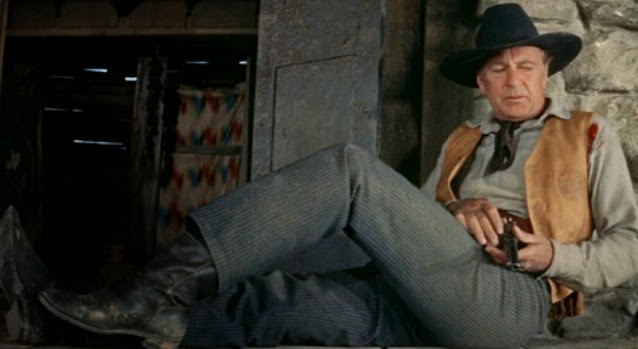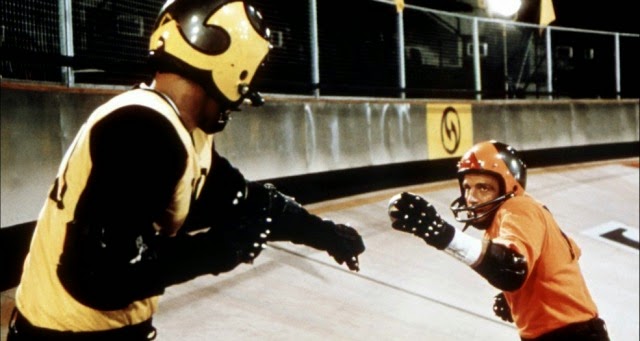
Genre:
War, Drama
Distributor:
BFI
BD Release Date:
6th April 2015
Rating:15
Director:
Roberto Rossellini
Cast:
Anna Magnani, Federico Fellini, Aldo Fabrizi, Carmela Sazio, Gar Moore, Edmund Moeschke, Ernst Pittschau, Ingetraud Hinze
Buy: Rossellini: The War Trilogy - [Blu-ray]
Wes Anderson once said, “There are only two kinds of filmmakers, Rossellini's and Fellinis" and Wes is certainly of the Fellini kind. Rossellini is most associated with the Italian neorealism of the 40s and 50s (Fellini made a few but he had a different calling) which incorporated humanist stories about working class people for the most part. BFI has compiled a new Blu-Ray boxset of his most celebrated War Trilogy that consists of Rome, Open City, Paisan, and Germany Year Zero and also thrown in is L’Amour.
Rome, Open City was not the first neorealist film but was certainly the first one to be widely seen across the globe. It was made directly after the liberation of Rome from the fascists and it’s a startling achievement. The whole film is a snapshot of the struggles the resistance against the Nazis faced, in the horrid conditions they lived in. Fellini, along with Sergio Amidei, wrote the script and they declared the film to be “the history of the Roman people under Nazi occupation”. Originally Rossellini wanted to make a documentary but Fellini convinced him otherwise.
It still packs a punch 70 years later; it’s brutal at times. The interrogation scenes in the last 20 minutes are insanely grim at moments. The film has an extremely cynical take on everything, which considering everything that transpired before they made it, is understandable - the film ends with an execution after all. The film is a bitter and angry piece of political cinema, which really needs to be seen even if it’s simplistic, because the Italians are portrayed as “the good guys” and the Germans as “the bad guys”, and we know they were really allies. It also won the most prestigious award in film, The Palme D’Or.
The weakest of the 3 films in the War Trilogy is by far Paisan. It’s an anthology film of 6 individual stories about the war and I’ve never been a fan of anthology films or short films in general, with obviously some exceptions. All of the stories are around 20 minutes long (the film is a little over 2 hours) and none of them really have the time to truly develop their characters, so you quickly lose interest with some of the stories. It’s still a good film and is considered by many as Rossellini’s crowning achievement, but it simply didn’t work for me at times.
Germany Year Zero, for my money, is the masterpiece of the three (even though Rome, Open City comes very close) and sadly seems to be neglected in favourite of the other two films. One of my favourite sub-genres are films about childhood during wartime, and this fits perfectly into that. Unlike the other two films, it’s set in a post-war Germany and it’s about a 13 year old boy, Edmund Kohler, who has to try to make ends meet doing small jobs to help his family survive.
When Germany Year Zero came out critics in Italy and Germany despised the film, it used studios and near-projection which in the so-called rules of neorealism was sacrilege. It’s pessimistic to it’s core, the Germany Rossellini portrays is devastatingly damaged, corruption runs rampant. Edmund gets involved with former schoolteacher Herr Henning, and it’s implied he is a paedophile and still a local Nazi who is only letting him sell stuff to help his family for sexual favours. The French critic Andre Bazin also disliked the film, but Charles Chaplin (a man often misunderstood in his time) called it "the most beautiful Italian film".
It is one of the finest films I’ve ever seen on the loss of innocence, it’s up there with such masterpieces as Come and See and Empire of the Sun. It has one of the most shocking endings of any film and paves the way for the French New Wave and especially Truffaut’s The 400 Blows. It still seems to be a divisive film for fans of Italian neorealism, but along with Bicycle Thieves is the best to come out of the movement.
The final film included is not a war film but a film he made at the same time as Germany Year Zero called L’Amour. It’s an anthology film that consists of 2 short films around 40 minutes each. The first one is a one-act play by Jean Cocteau, which is about a woman trying to salvage a relationship over the phone. It’s extremely claustrophobic and stagey, but has a powerhouse performance by Rossellini’s frequent muse and lover Anna Magnani who also appears in the other segment.
The second segment takes a more allegorical turn. The young Federico Fellini makes a rare appearance in front of screen as Saint Joseph who impregnates a crazy peasant (Anna Magnani) who he believes to be the Virgin Mary. It’s a fascinating short at the time and was condemned by “The National Legion of Decency” as being Anti-Catholic but it’s anything but.
BFI has compiled a package that is very impressive, as you would expect from them. Germany Year Zero is a total masterpiece and really needs to be seen to be believed, and despite some reservations, the other films are very good as well. The discs include a documentary on Rome, Open City and a visual essay on the trilogy by Tag Gallagher. The boxset includes a booklet with essays by Jonathan Rosenbaum, Gallagher and more.








































